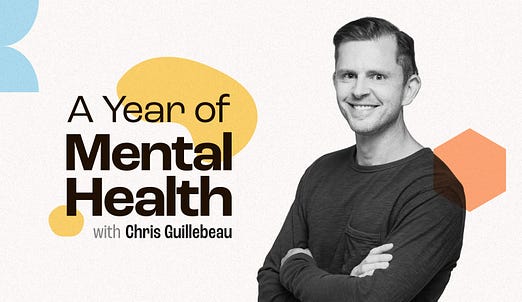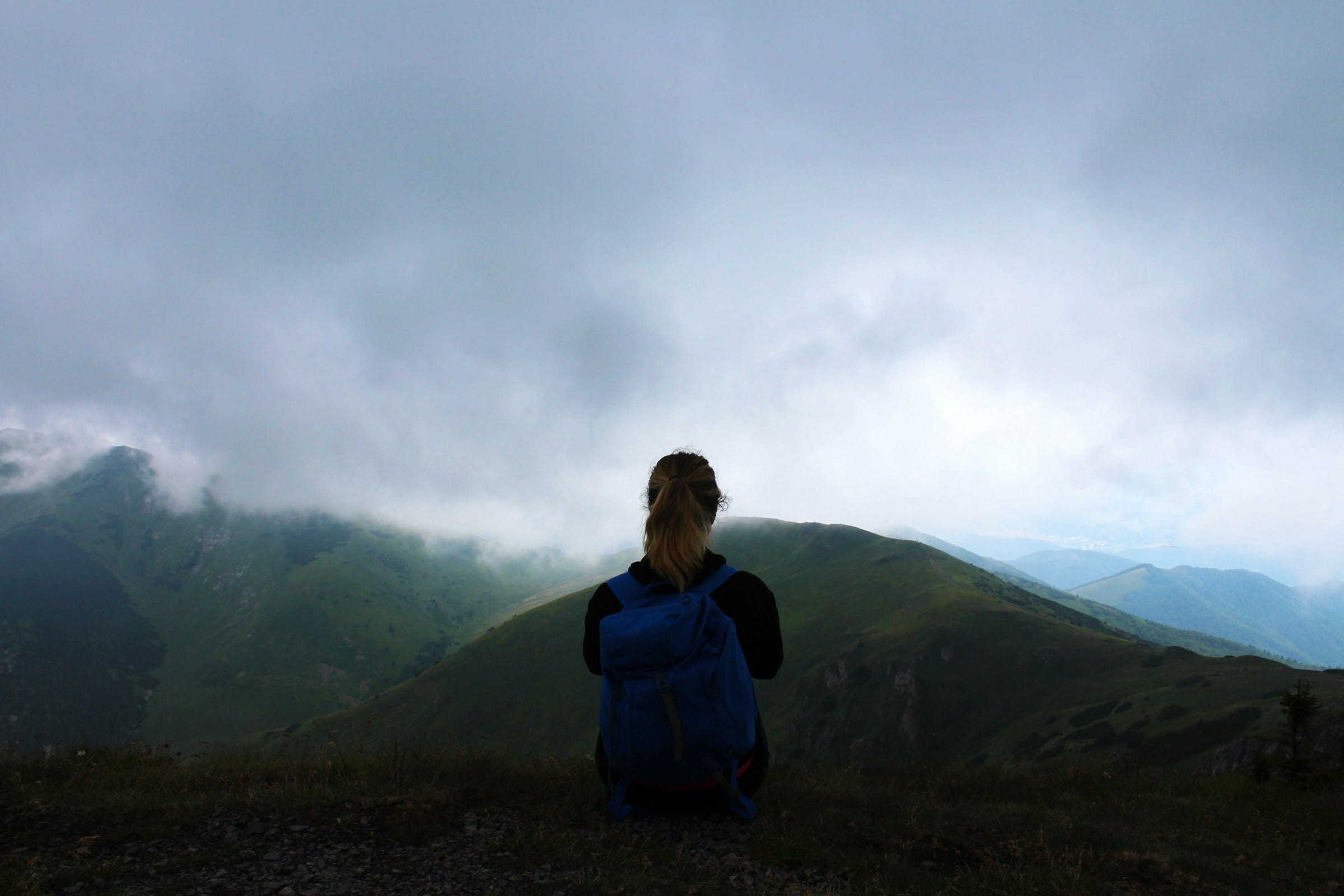The DOING THINGS course comes out next week! All paid newsletter subscribers will receive it completely free. (The newsletter itself will continue to be 100% free for everyone.) As always, thank you for reading. If you find these posts helpful, please click the “like” button at the top or bottom. 🙏 Last week I wrote a post about how sometimes you should take active steps towards things that feel painful. After I wrote the post, I got an email from a longtime reader, who wanted to share her story of recovering from an autoimmune disorder. We wrote back and forth a couple of times, and—with her permission—I’m including a lightly edited version of the communication below. (After I asked if I could share the story, we changed a couple of small details to keep the writer anonymous. The edits are minor and I thought it best to present you their message with no further preamble.) How I Recovered from a Psychosomatic IllnessReader story below ⬇️I’m a little more than three years out of a psychosomatic illness that I called chronic fatigue syndrome. I’m not saying that CFS (known as ME or ME/CFS in the UK and elsewhere) is psychosomatic for everyone. But I also never would have said it was for me until the very end, when I suddenly recovered. In fact, I would have been mad and hurt if I’d read your post! I would have put you in the camp of people who said I was faking it. I would have said that I needed to rest. Doing ‘too much’ was taxing me. I had to protect my energy. But all of these things turned out to be untrue, at least in large part. Sure, I needed to rest like everyone else did, but not significantly more than everyone else. So, what changed? I don’t think it was a single moment, but if I had to pick, one day I was on a long walk and reflecting on how small my life had become. Most of my conversations with friends had devolved to questions and updates about “how I was doing.” My old friend group had stopped inviting me to things, mostly because I had stopped accepting any of the invitations. It was a lose-lose spiral, and I found myself feeling more and more alone. As I was walking, I asked myself: “Is this really how I want to live?” It probably sounds silly, but I’m not sure I had ever thought about this question before. Or if I had, I immediately thought about all the reasons why I had to live this way, all the problems I had, all the symptoms I’d experience if I went back out in the world, if I pushed myself, or whatever. After that day, nothing was ever the same. Here’s what I did: I began acting as though my symptoms didn’t exist. I began doing the things I’d been afraid to do, whether committing to social engagements in advance or going on a longer hike or just working through the day without a long break. Was the change magic and immediate? Here I am tempted to say, “Of course not,” and it’s true that I still felt tired for a long time. But in a way, it was magic and immediate and wonderful. I realized that instead of feeling sick, most of the time I just felt anxious and afraid. These feelings produced the sense of feeling sick (it felt very real), but ultimately there was no other medical or physical origin for them. Over the next few months I kept doing what you described in your post: seeking out symptoms, or “running” toward danger. (I’m not really a runner myself. But I did start doing Pilates and yoga again, for the first time on a regular basis in three years.) Whenever I doubted myself, I thought back to the question: “Is this really how I want to live?” I tried to think of different forms of it, depending on the situation.
(Some of your writings were helpful in this process, btw. So thank you for that!) I could say more, but the point is that I was sick, and now I’m not. Or rather, I was highly anxious, and this affected my ability to function in life, and therefore I decided I was sick. And then I actually was sick, remember. It’s complicated, because just because the “sickness” was psychosomatic doesn’t mean it wasn’t painful. It just means that there was no medical cause that could be treated, short of recognizing that anxiety was ultimately the source. That’s what I had to deal with, and I’m glad that I finally learned to. [/ reader story] Closing NotesI think it’s important to note that this person’s experience is their own, and the recovery process is different for everyone. Here’s another example: Tiago Forte, a longtime friend of mine, also recently shared a story (his own!) of recovering from a psychosomatic illness. If you’re interested in this topic, broadly speaking, I definitely recommend you read the full article from Tiago. He goes into some more detail of what his situation really felt like, as well as what was helpful in him getting out of it. And of course, neither of these stories will apply to many of our readers. I just thought I’d share this reader’s perspective, since it felt important and timely. You’re currently a free subscriber to 🌻 A Year of Mental Health. For the full experience, consider upgrading! |
Friday, September 27, 2024
A Reader Story of Autoimmune Disorder Recovery
Subscribe to:
Post Comments (Atom)
This Is What Real Investing Confidence Looks Like
In today's Masters Series, originally from the November 12 issue of the Chaikin PowerFeed e-letter, Pete details how you can identify ...

-
insidecroydon posted: " Become a Patron! What's on inside Croydon: Click here for the latest events listing...





No comments:
Post a Comment